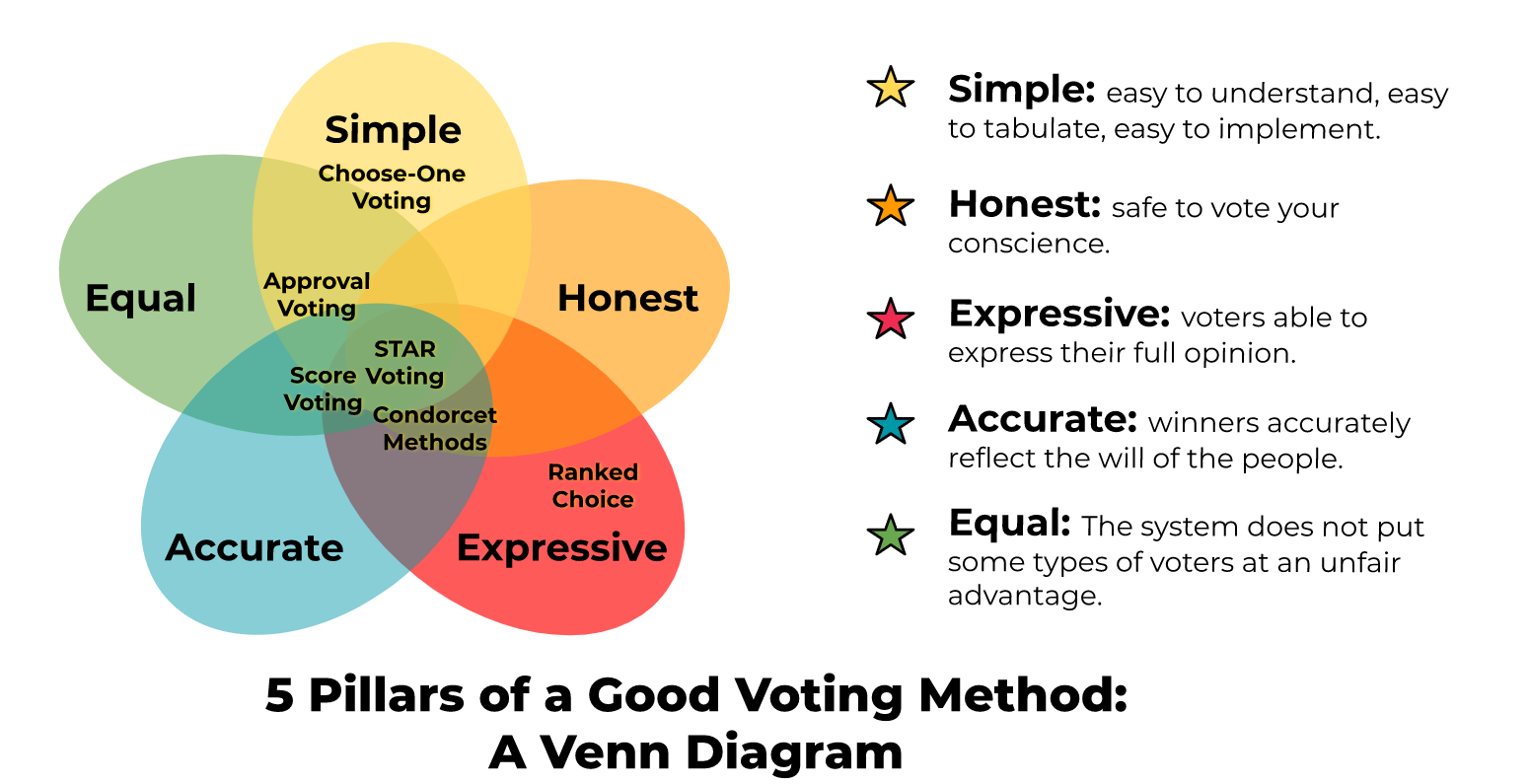Scenarios for Evaluating Methods
-
I think it would be useful to have a list of scenarios, which can be used to evaluate the performance of various methods of selecting a winner. For each scenario, there should be almost unanimous agreement on the best choice, and the methods will need to be able to make the correct selection. In some situations, there may be two or more outcomes that are pretty much equally desired by the voters.
For example, in Alex Gendler's TED-Ed video, https://youtu.be/PaxVCsnox_4, it seems to me that everyone will agree that North base is the spaceport location that will result in the greatest amount of satisfaction for the greatest number of people.
If I'm correct, about the nearly unanimous agreement, then methods can be compared based on how well they do with a variety of scenarios with an established best outcome consensus.
If I'm wrong, and people cannot agree on what the best choice is, then it seems to me that our quest to find a method is striving to achieve the impossible.
-
The problem is not so much about specific example elections but properties of systems. Examples can be good to illustrate these criteria but a list of these examples would not ever be big enough to show all possible issues.
I do not think you will be able to get nearly unanimous agreement. For Example, FairVote even refuses to admit that monotonicity is a requirement. This is a post hoc rationalization because they endorse nonmonotonic systems like IRV and STV.
Then there are more ideological issues like Majoritarian vs Utilitarian systems. This is very hard to change people mind on. It is split between groups with activists/political scientists preferring majoritarian systems and voting theorists/empirical scientists preferring utilitarian systems.
So yes, we are striving to achieve the impossible. Equal Vote has a set of criteria which are required to be passed to get endorsement.

-
Thanks Keith for commenting. I'd like to know in some detail how each of the 5 criteria are evaluated. In particular, "Accurate". How is the bull's eye, so to speak, determined for a particular scenario?
-
An accurate system yields high voter satisfaction efficiency and/or Bayesian regret. It is not so much about getting the right winner given the ballots but about getting this right winner in the case of strategy. @SaraWolk can point you to the VSE research showing how different systems do.
Equal and honest are also about strategy resilience.
Some of the other criteria are more straightforward like being expressive and simple. Those have an inverse relationship.